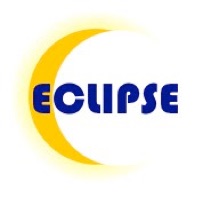Mohammed was a participant in the Understanding Science Project. When Mohammed was near the end of his first term of upper secondary science (in Y10) he told me that in his chemistry lessons he had been studying atoms and ionic bonding. When I asked him what an atom was, he suggested that an atom is the smallest amount of matter you can get as well as being "it’s the building block of all matter". It is not unusual for students to suggest that atom is the smallest thing that one can get, and then go on to describe atomic structure in terms of smaller components! Mohammed justified his suggestion that an atom was "the smallest amount of matter you can get" by arguing that "matter is something that is built out of protons, neutrons and electrons". So from Mohammed's perspective it would not necessarily have been inconsistent to suggest that an atom was the smallest particle of matter possible, despite it having structure, if the definition of matter included suitable criteria. However, Mohammed did not suggest that, for example, matter had to have overall neutrality, and his suggestion that matter is something that is built out of protons, neutrons and electrons had to be amended when it was then tested out. Mohammed presented his responses with confidence and without hesitation, which seemed to suggest he was offering well established ideas. However, he did not seem to have thought through these ideas, and perhaps was constructing a rationale in situ in the interview.
I: So what if I had a balloon full of hydrogen gas, would that, would the hydrogen be matter?
M: Yeah.
I: So would that consist of protons, neutrons and electrons?
M: No it wouldn’t. Sorry, can I take away the neutrons
I: Okay, so matter’s what then? What’s our new definition of matter?
M: Protons, electrons.
The logical consequences of Mohammed's new definition was that atoms and ions would be considered matter but not nuclei or electrons.
I: What if I had sodium. Do you think that would be matter?… if I had a lump of sodium, would that be matter?
M: Yeah
I: And why’s that matter?
M: Because it has, it has a full atom, it has protons, neutrons, electrons, even though you can have no neutrons.
I: Okay, but it has to have the protons and the electrons?
M: Yeah.
I: Now what if I just had one atom of sodium, would that still be matter?
M: Yeah.
…
I:so let’s say I’ve got my atom, with my eleven protons, and my probably twelve neutrons I think usually. And I’ve got eleven electrons round the outside. If I take take one of the electrons off this atom, it’s not an atom any more is it?
M: It’s an ion.
I: Now is it still matter?
M: Yeah.
I: Because I’ve still got protons and electrons. What if I took a second electron off, could I take a take second electron off?
M: Yeah.
I: What have I got then, then?
M: You’ve still got matter.
I: What if I took a third one off?
M: Well if you, if you just take all of them off, then you’d stop having matter.
I: So if I’ve got eleven electrons, can I take ten of them off?
M: Yeah.
I: And I’d still have matter?
M: Yeah.
The idea of what counts as matter here seems rather idiosyncratic, rather than being a common alternative conception. My suspicion is that Mohammed's confidence in his original idea led to him choosing to follow it through to its logical conclusion rather than perhaps conceding that mater might be understood rather differently. However, this is an interpretation and it is possible Mohammed commitment to his idiosyncratic idea of demarcating matter had a basis in something he had earlier read, been told, thought through etc.
Return to ECLIPSE homepage
List of science topics

Dr Keith S Taber kst24@cam.ac.uk
University of Cambridge Faculty of Education
© Keith S Taber